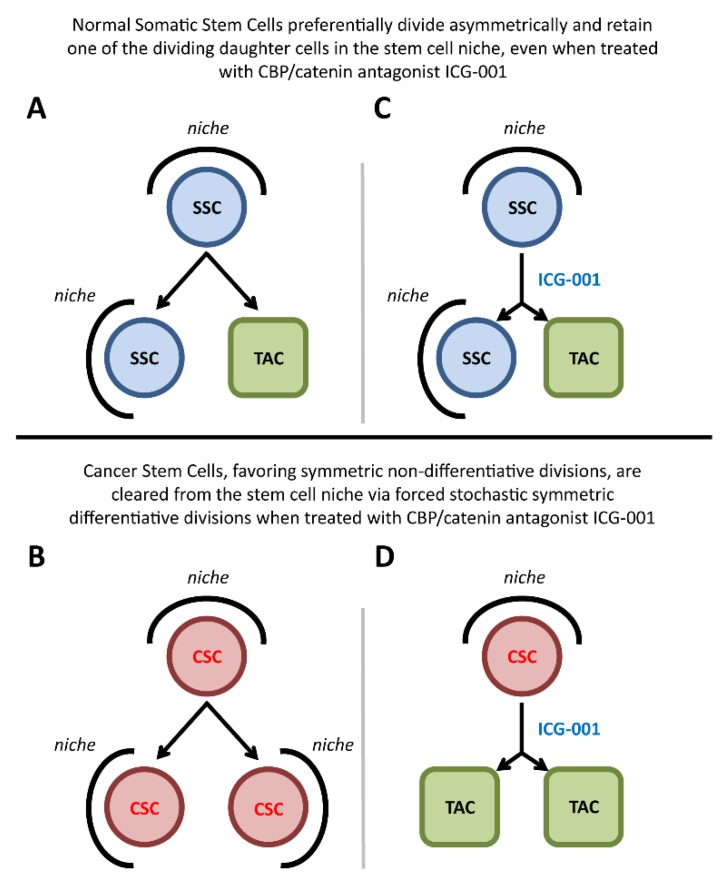Figure 1.
Differential effects of CBP/β-catenin antagonism on cancer stem cells versus normal somatic stem cells. Normal long-term repopulating somatic stem cells (SSCs) preferentially divide asymmetrically, with one daughter cell remaining in the niche and the other going on to be a transient amplifying cell (TAC) required for generating new tissue in homeostatic maintenance and repair processes (A), whereas cancer stem cells (CSCs) favor symmetric divisions (B). Even when treated with CBP/β-catenin antagonist ICG-001, normal SSCs that divide asymmetrically will always retain one of the dividing daughter cells in the stem cell niche (C). However, when treated with ICG-001, CSCs will be removed from their niche via forced stochastic symmetric differentiative divisions (D). This fundamental cell-intrinsic difference between CSCs and SSCs thus provides a unique opportunity to therapeutically target and eliminate CSCs, as well as enhance the repair potential of normal SSCs, without damaging or depleting the normal endogenous stem cell populations.

